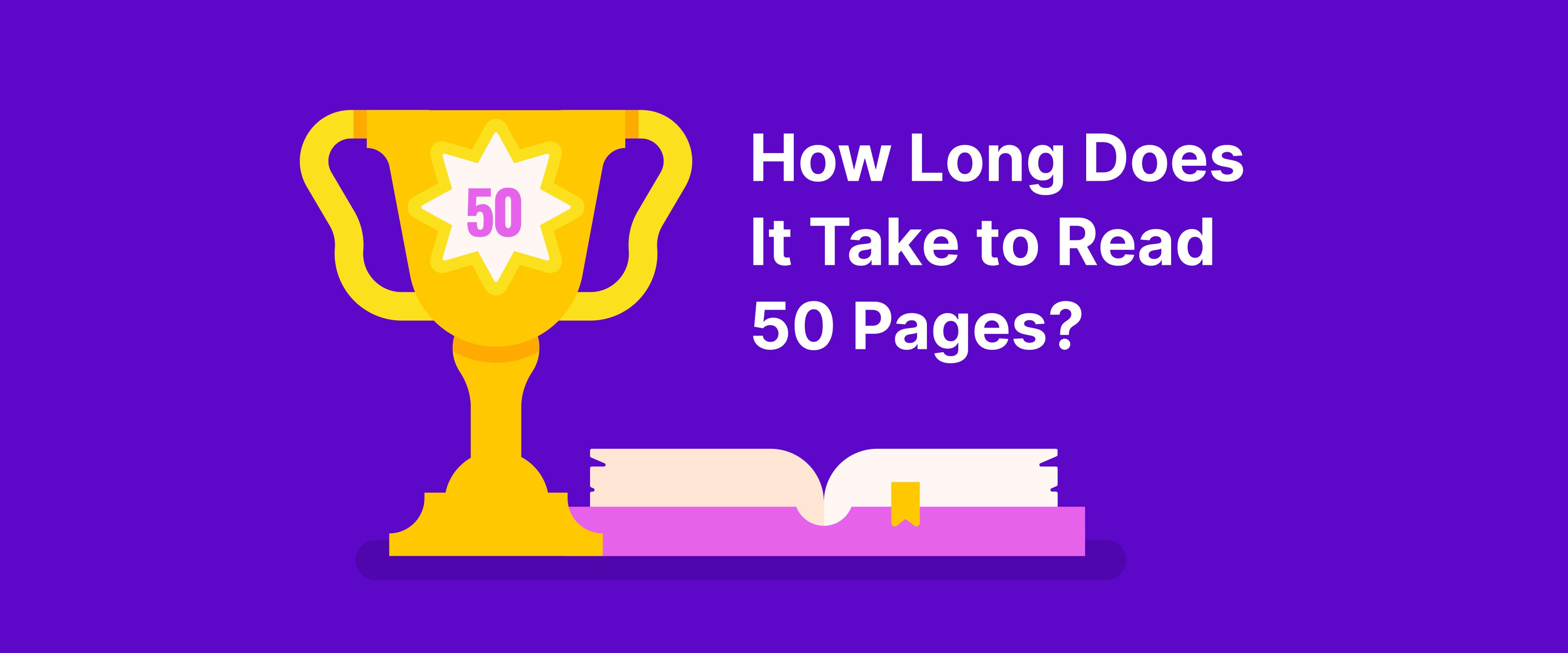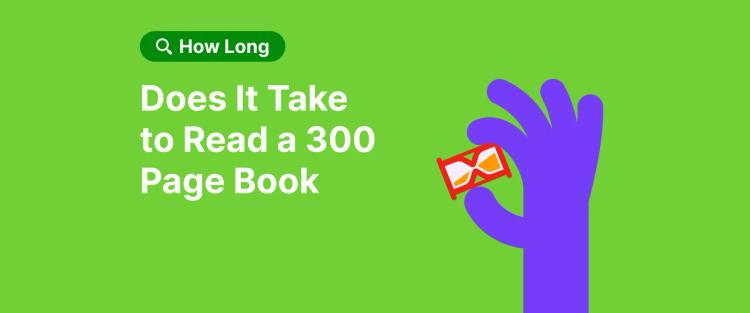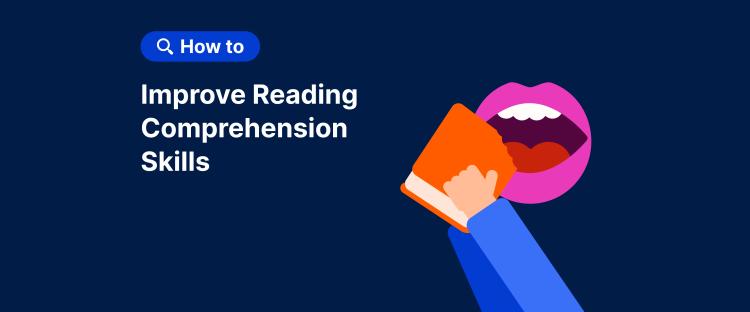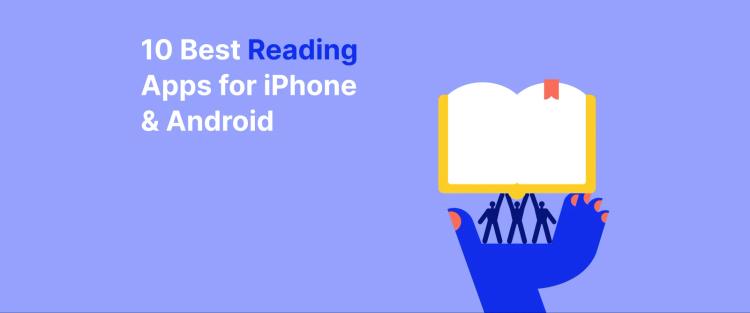How long does it take to read 50 pages, and how can you read faster? With an average reading speed of 200-300 words per minute (wpm), a 50-page book takes approximately 1.4 hours to finish. But with the right techniques and strategies, you can easily turn from an average reader to a speed reader and devour an entire book in less time.
From Cal Newport's rules of deep work to Kam Knight's key lessons on speed reading, the following strategies will teach you how to read books, both fiction and nonfiction, at a greater speed and improve comprehension no matter the word count.
These tips are hand-picked from Headway book summaries for faster and easier access. Their concise format will help you keep all important takeaways in one place and allow you to access them whenever you want. The best thing? They'll instill a daily reading habit that sticks and boosts your self-development.
Quick tips for reading 50 pages faster:
Skim first: Preview headers and summaries to build context.
Schedule focused reading blocks: Create a daily structure for deep learning.
Limit distractions: Turn off notifications and use Do Not Disturb.
Use active reading: Highlight key points and take margin notes.
Stay consistent: Build daily reading habits for speed and retention.
Try Headway summaries: Read or listen in just 15 minutes.
Want to know more about speed reading and its benefits for your mind? Keep reading to explore each strategy in detail!
Top 7 proven tips to increase your reading speed and efficiency
Time flies with a good book, that's for sure. But if you're a slow reader, enjoying Stephen King's new story, a short fiction book, or your favorite Amazon Kindle novella might be difficult. Here are the best expert-backed strategies to read page after page faster than an average person.
1. Schedule your workday with intentional reading time
In 'Deep Work,' Cal Newport emphasizes the importance of time blocking — scheduling your day in focused, distraction-free chunks. Instead of leaving reading time up to chance, create a daily structure with time for deep, focused learning.
Let's say you're trying to read a 50-page report for work. Instead of trying to "fit it in," you block out 30 minutes from 9:00–9:30 am, right after your morning routine when your mind is sharp. You then schedule a second 30-minute session at 2:00 pm to reflect or take notes. Eventually, this consistency trains your brain to focus more quickly.
2. Take breaks to rest your focus
Our ability to concentrate intensely is like a muscle. And muscles need rest to grow. So, take deliberate breaks to avoid mental burnout, especially during reading or study sessions. These breaks will help you process and retain what you've read. After 25 minutes of focused reading, take a five-minute walk or do a quick breathing exercise. You'll immediately notice increased clarity and better retention.
3. Limit social media use
Can't imagine your life without social media? But what if these platforms are built to fracture attention? Constant notifications and dopamine-driven scrolling reduce your capacity for deep concentration, making it harder to read even a few pages without distraction. Thus, limiting social media use can help you focus and become more productive.
Before your next reading session, log out of Instagram, turn off your phone's push notifications, and put it on Do Not Disturb. You could even use an app blocker to limit access during reading blocks. After just one week, you'll likely find you can read more in less time, with better focus and fewer regressions.
4. Practice active reading

Active reading is about engaging with the text intentionally, not just letting your eyes pass over the words. Instead of being a passive reader, you should approach each page with purpose. Following Kam Knight's explanation in his book 'Speed Reading,' active reading involves setting clear goals, asking questions, and mentally interacting with the content to keep your brain alert and focused.
Suppose you're about to read a 300-page book on communication. Before plunging in, ask yourself, "What are the top three skills I can apply in real life from this book?" As you read, underline key techniques, jot down quick notes in the margin, or mentally link new concepts to things you already know. This will make your reading faster and improve recall.
5. Skim the text strategically
Skimming isn't lazy. It's smart when done with intention. Skim the text first to get a sense of structure, the main points, and overall flow before more thoughtful reading. This primes your brain for faster comprehension because you've already created a mental roadmap.
In simple words, instead of starting from page one and reading line by line, you first skim the table of contents, section headers, introduction, and conclusion. Then, you graze key paragraphs, pulling out bolded points, bullet lists, and topic sentences. Now, when you go back to read the critical parts in depth, you already understand what to look for, saving time and improving focus.
6. Stay consistent to build speed and endurance
Practice makes perfect. And when it comes to your reading habit, the more consistent your practice, the better your comprehension. Also, make sure you read different books to switch between your reading levels. In 'How to Read a Book,' Mortimer J. Adler describes four of them: elementary, inspectional, analytical, and syntopical. The level you choose depends on the type of book you're reading.
Want more tips on developing new habits and staying consistent? Read or listen to the full summary of 'Atomic Habits' by James Clear on the Headway app.
7. Invest in self-development and "sharpen your saw"
Trying to become a faster, more efficient reader while mentally exhausted or distracted is like sawing wood with a dull blade. Instead, when you invest in regular self-renewal and learning, you increase not only your reading speed but also your mental clarity, motivation, and retention.
In his bestselling book, 'The Seven Habits of Highly Effective People,' Stephen Covey urges readers to "sharpen the saw" — a metaphor for taking time to renew and improve your most important tools: your body, mind, heart, and spirit. When it comes to reading efficiency, sharpening the saw means intentionally building habits, systems, and energy levels that make focused learning sustainable, not just occasional.
How long does it take to read 50 pages? Average time by speed
The time it takes to read 50 pages depends on your words per minute (WPM) reading speed and the density or complexity of the content. For a standard book (roughly 250–300 words per page), most people fall within a reading speed range of 150 to 300 WPM. Here's a detailed breakdown of reading time estimates:
| Reading Speed (WPM) | Words per 50 Pages | Estimated Reading Time |
|---|---|---|
150 WPM (Slow) | 12,500 – 15,000 | 83–100 minutes (1 hr 20 min – 1 hr 40 min) |
200 WPM (Average) | 12,500 – 15,000 | 63–75 minutes (1 hr – 1 hr 15 min) |
250 WPM (Above Avg) | 12,500 – 15,000 | 50–60 minutes |
300 WPM (Fast) | 12,500 – 15,000 | 42–50 minutes |
500 WPM (Speed Reader) | 12,500 – 15,000 | 25–30 minutes |
To calculate your reading time, use this formula: Reading Time (minutes) = (Number of Pages * Words per Page) / Words per Minute
What these results tell you:
If you're a casual or slow reader, you'll need about 1.5 hours to read 50 pages.
At an average pace, expect just over an hour of focused reading.
If you're trained in speed reading, 50 pages could take under 30 minutes.
These numbers are helpful for planning your reading time and choosing a new book recommendation for the future.
What affects your reading time? Three key factors to consider
Reading time varies significantly from person to person. Why? Because several key factors influence how fast and effectively you read, including the number of words, font size, your reading speed, content complexity, distractions, and whether a book has double-spaced or single-spaced pages. Understanding these will help you better plan your reading sessions and improve overall retention.
1. Reading speed variations

Not everyone reads at the same pace. Your natural reading speed plays a major role in how quickly you can get through a book or article. On average:
Slow readers may process around 150 words per minute
Average readers hit about 200–250 WPM
Fast readers and skimmers can reach 300–500 WPM or more
Your speed may also change depending on your reading goals. For example, scanning for keywords in a business report is much faster than digesting every word in a dense philosophy book.
2. Content complexity and familiarity
The difficulty and density of the material can make a big difference. Reading 50 pages of a light novel won't take the same time as 50 pages of a technical manual or academic journal.
Easy, familiar content = Faster reading
Complex, unfamiliar topics = Slower processing time
For instance, someone reading a self-help book on habits (like 'Atomic Habits' by James Clear) may breeze through it in an hour, while another person might need two hours to read 50 pages of a medical textbook.
3. Environment and distractions
Your surroundings affect both your reading speed and comprehension. Trying to read in a noisy café while multitasking or when you're mentally drained will likely slow you down.
Quiet, focused environments = Better retention and faster reading
Frequent interruptions = Slower reading, more regression, less memory
Hit your speed reading goals with Headway book summaries
You don't need hours of free time to become a more efficient reader. If you want to build a smarter reading habit, knowing how to read a 50-page book effectively can save time and boost your learning. That's where the Headway app comes in.
With a library of 15-minute book summaries, you can absorb the key insights of even the most complex reads quickly and clearly. Want to improve your decision-making? Start with 'Thinking, Fast and Slow' by Daniel Kahneman for science-backed strategies, or explore 'How to Read a Book' by Mortimer J. Adler to learn the art of deep, purposeful reading.
Download the app today and start building a daily microlearning routine to read better, faster, and with more purpose.
Frequently Asked Questions
Is reading 50 pages an hour considered fast?
Reading 50 pages in an hour is considered above average for most readers. It means you're reading at approximately 250–300 words per minute (WPM) — a pace faster than the average adult, who typically reads around 200–250 WPM. If you're reading complex nonfiction or technical material at this speed, that's especially impressive. For fiction or easier reads, it's a strong and efficient pace to aim for.
Can you read 50 pages in 30 minutes?
Yes, but it requires a reading speed of around 500–600 WPM, which is common among trained speed readers. Most people will need closer to an hour. However, you can reduce your reading time with techniques like skimming, previewing the content, and using apps for book lovers like the Headway app to absorb key insights quickly through 15-minute book summaries.
How many pages is a 10-minute read?
On average, you can read six to eight pages in 10 minutes, depending on your reading speed and the complexity of the text. At 250 WPM, you'll cover about 2,500–3,000 words, roughly six pages in a standard-format book with 400–500 words per page. For faster readers, or when skimming simpler material, you might reach 10–12 pages in that same time frame.
Is it OK to read 50 pages a day?
Absolutely! Reading 50 pages a day is a fantastic goal for both personal development and building a lifelong reading habit. At an average pace, this takes about 1 to 1.5 hours daily and allows you to finish 1–2 books per week, depending on length. It's a manageable goal that boosts focus, reduces screen time, and exposes you to new ideas, especially if you read nonfiction, classics, or personal growth titles.
What is the 50-page rule?
The 50-page rule is a popular reading strategy that suggests: "If a book hasn't captured your interest by page 50, it's okay to stop reading it." It helps readers avoid wasting time on books that don't resonate with them — especially useful when your TBR (To Be Read) list is long. For busy professionals or casual readers, this rule supports reading with intention and spending more time on content that's meaningful, relevant, or enjoyable.
Is 50 pages too short for a book?
Fifty pages is typically considered too short for a full-length book, but it can still qualify as a short book, novella, essay collection, or guide, depending on the content and purpose. It can be perfect for high-impact nonfiction, children's literature, or microlearning formats.













